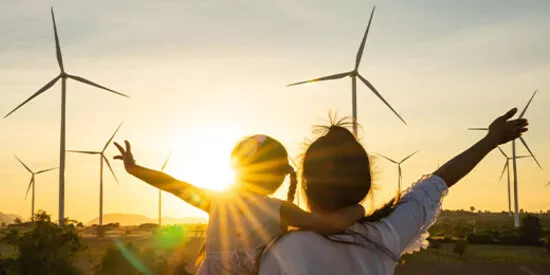
Asia’s energy transition: a changing outlook for commodities
In the energy transition, the commodities sector is where the pedal really hits the metal. Rising prices are just a taste of things to come.
The fight against inflation has dominated global markets over the last couple of years. Looking ahead, we think the energy transition could become a new structural driver of inflation in the coming years.
Commodities have played a big part in previous inflationary cycles, and Asia’s role in the transition to greener energy sources has become a key input in the global macro picture.
Without Asia, there is no transition
Asia is the world’s economic growth engine and is set to provide around 60% of global growth for 2024. As a result, the region also faces the highest inflationary drag to its economy due to the import cost of fossil fuels.
The flip side is that this creates significant economic motivation for the continent to shift towards green energy. On the supply side, Asia is the world’s key producer of transition critical goods: global supply chains for solar equipment, grid technology and batteries are highly dependent on Asia’s contribution.
Without Asia, there is no transition. As Asia steps up its efforts to curb emissions, investors can expect more volatility in global markets in the years ahead.
A new commodities supercycle
To transition away from fossil fuels, the future energy system will need to tap a variety of different commodity markets – predominantly metals such as copper.
For example, electric vehicles (EVs) use up to four times as much copper as traditional cars. To align with International Energy Agency’s (IEA) Stated Policies Scenario, we need to have 145 million EVs on the road by 2030, which is a 13-fold increase from 2022.
The bottom line is that the energy transition is a massive growth story for commodities.
When it comes to prices, the key question is to what extent demand and supply will be able to increase in lockstep. Alternatively, given the uneven pace of the transition, we might need to brace for imbalances that will result in inflation and higher consumer prices.
The current signs suggest there will be more volatility ahead.
Asia’s role as a major driver of global economic growth and the urgency of climate mitigation measures will be a decisive factor for commodities markets in this next growth phase.
The price of progress: what we are transitioning towards
First, let’s look at the needs of the electrified energy system that we are transitioning towards: electrification requires significant additional metals production, notably copper with its unsurpassed conductive properties.
But mining is a highly capital-intensive industry, which means it is sensitive to interest rates and inflation. Furthermore, it is highly labour-intensive, and energy-intensive.
Against the backdrop of greenfield mine development now taking on average 15.7 years from discovery to production, the impacts of this macro sensitivity are exponentiated. This brings a real risk of structural deficits across multiple metal supply chains if the energy transition occurs too fast.
The price of lack of progress: what we are transitioning away from
Second, let’s look at what we are transitioning away from.
With investment spending in upstream fossil fuels being displaced by spending on the energy transition, the risk of a slower-than-expected transition is that there will not be sufficient energy resources – either renewable or otherwise – to meet a growing world population’s voracious appetite for energy.
Greenflation
The impact of both the glut and shortage scenarios could be significantly inflationary: we got a taste of the potential impact of mine supply deficits on copper when prices jumped by more than 20% earlier in the year to record highs approaching $11,000 per ton in May.
As copper becomes a more integral part of supply chains, its prices are likely to have a greater impact on inflation.
Similarly, underinvestment in upstream oil exploration and production means that crude prices risk heading significantly higher if green energy is not available at scale on time.
Simultaneously, the immediate effect of climate change through extreme weather events – drought and flooding – is likely to be most severely felt in agricultural markets with a potential downstream boost on food price inflation.
While we cannot predict how the intersection of those pressures will play out, we can be confident that more volatility lies ahead.

China finds its feet: economic stability and gradual recovery in 2025
By Wei Yao, Head of Research and Chief Economist for APAC at Societe Generale.

Best of both worlds: How social ABS delivers low-cost financing and a positive impact
By Eugene Kim, Head of Securitisation and Fund Finance for Asia Pacific at Societe Generale.

Data centres are taking Asia-Pacific by storm
By Marie Vinnell, Chief Country Officer for Australia and Eugene Tan, Head of Technology, Media and Telecoms for Asia...

Societe Generale wins 10 awards in sustainable finance
Global Finance has announced the winners of its fifth annual Sustainable Finance Awards for 2025 and the selections for...
